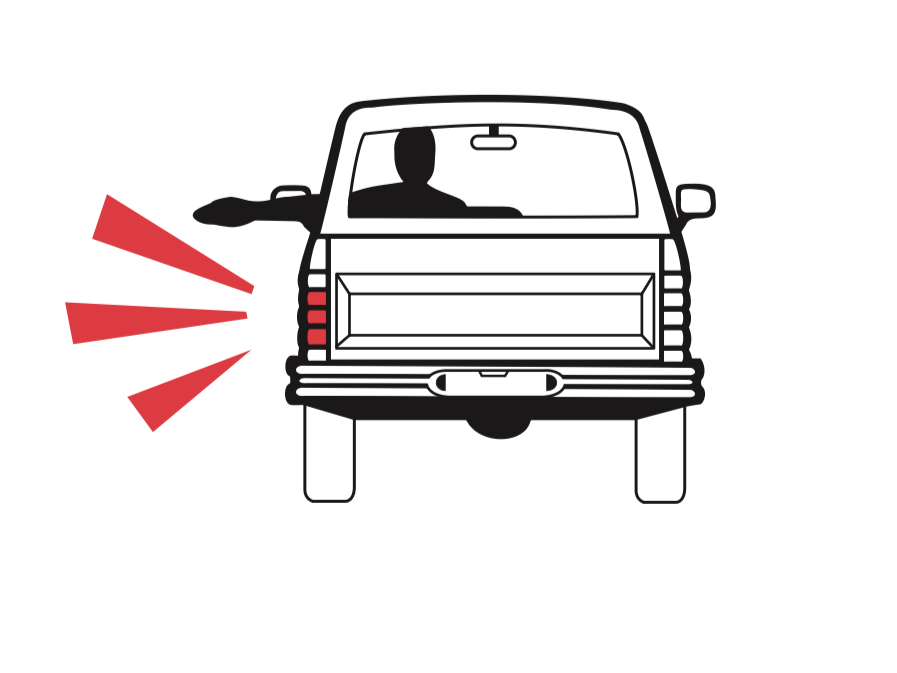Texas Driving Test Signs, Signals, and Markers
1/60
There's no tags or description
Looks like no tags are added yet.
Name | Mastery | Learn | Test | Matching | Spaced | Call with Kai |
|---|
No analytics yet
Send a link to your students to track their progress
61 Terms
Steady Red Light
Stop
Steady Yellow Light
Caution: stop before entering the nearest crosswalk at the intersection if you can do so safely
A Flashing Red Light
Stop completely before entering the crosswalk or intersection, then proceed when you can do so safely.
Flashing yellow light.
Slow down and proceed with caution.
Flashing Yellow Left Arrow
You can turn left but must yield the right-of-way to oncoming traffic
Steady Green Light
Go (yield right of way to other vehicles and pedestrians)
Left turn on Green
You can turn left but yield right of way to traffic approaching from the opposite direction before turning
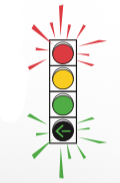
Proceed carefully in the direction of the arrow after yielding right of way.
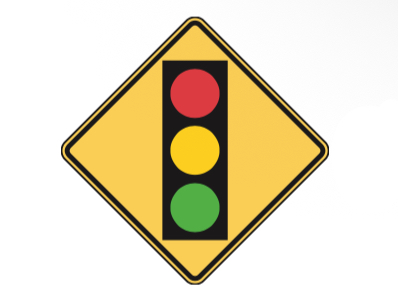
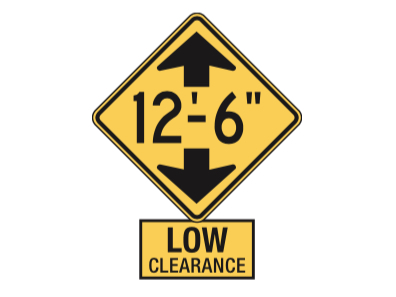
Height of underpass from road surface is shown. Do not try to enter if your load is higher than the figure shown on the sign.
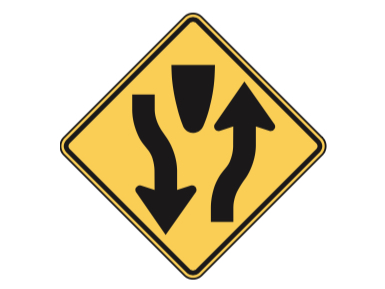
Advises you are approaching a section of highway where the opposing flows of traffic are separated by a median island
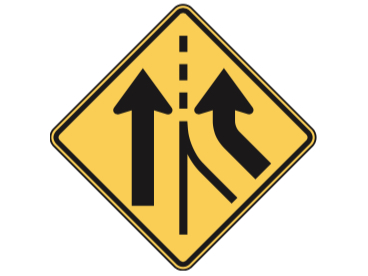
Two roads come together and an additional lane begins.
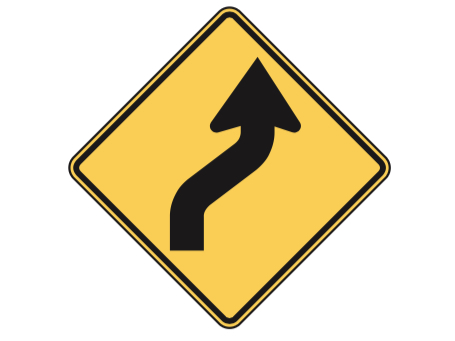
The road curves right and then left. Slow down, keep right, and do not pass.
Another road enters the road you’re traveling on the direction shown.
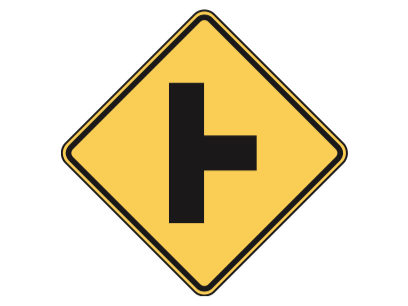
Cross traffic
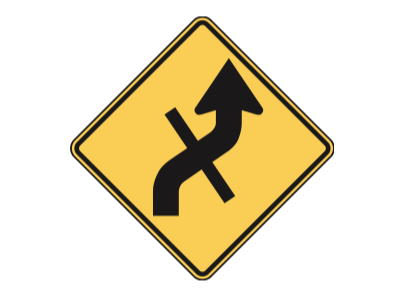
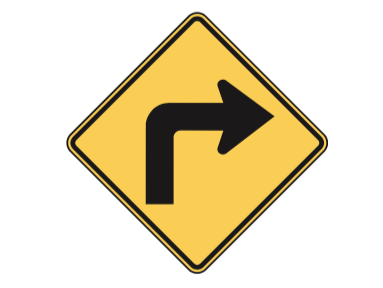
Road ahead makes a sharp turn in the direction of the arrow.
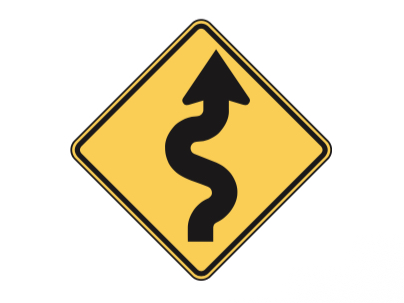
There is a winding road ahead. Drive slowly and carefully and do not pass.
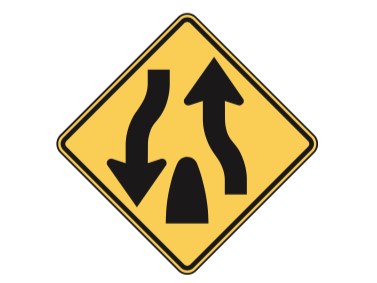
The divided highway ends ahead.
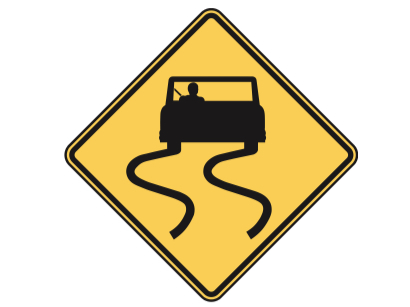
Slow down on wet road
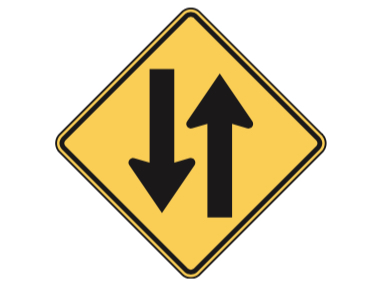
You should drive in the right-hand line and expect oncoming traffic in the left hand lane
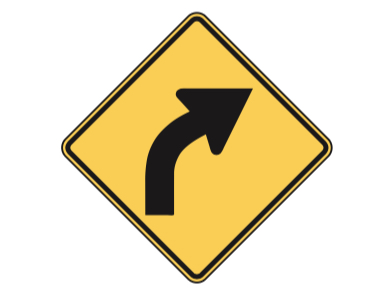
Road ahead makes a gradual curve in the direction of the arrow.
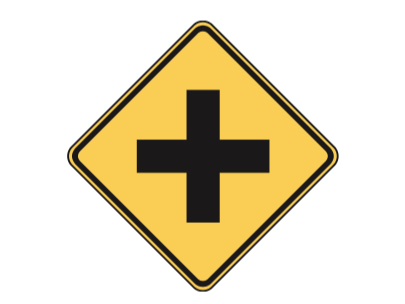
Cross road ahead; slow down and watch for cross traffic.
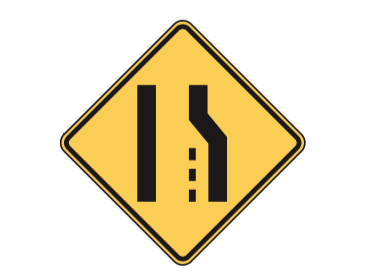
Gives advance notice of a reduction in the number of lanes of pavement ahead.
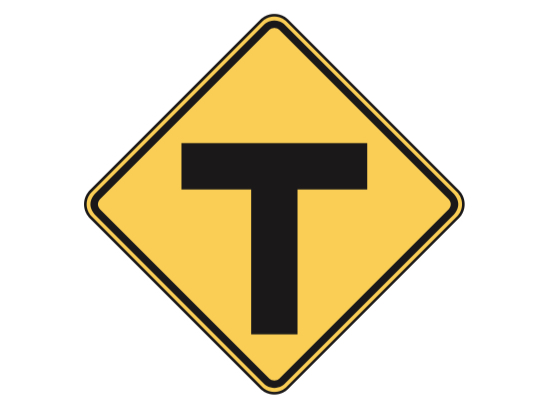
T-intersection
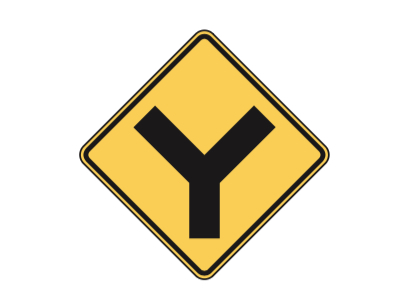
Y-intersection or side road traffic to the right.
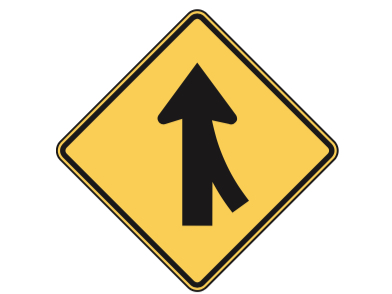
You are approaching a point where other traffic lanes come together with the one you are in. Watch for traffic from that direction.
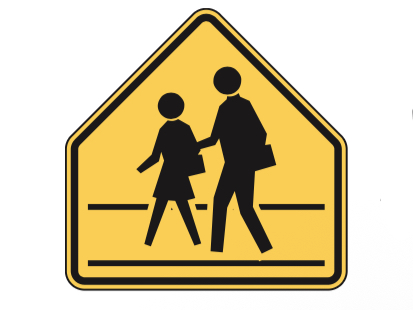
You’re near a school.
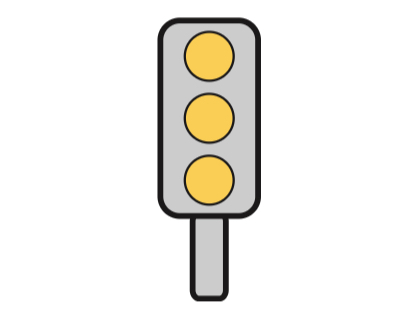
Mounted in front of an obstruction which is close to the edge of the road, such as culverts, or center piers on divided highways.
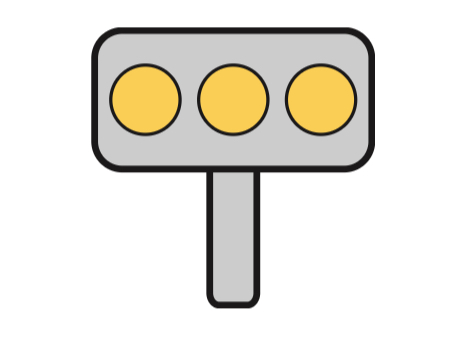
Mounted immediately in front of an obstruction or at short changes in road alignment
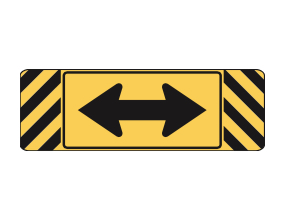
You are approaching a T intersection and must turn left or right. Be prepared to yield the right-of-way at the intersection if necessary.
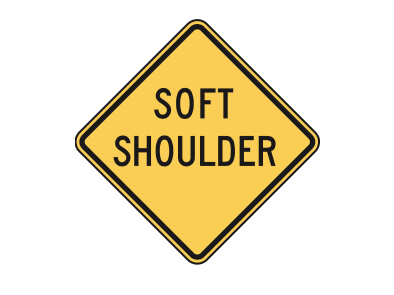
Use extreme caution to avoid running off the paved portion of the highway, because the dirt on the side of the pavement is soft and may cause you to lose control of the car.
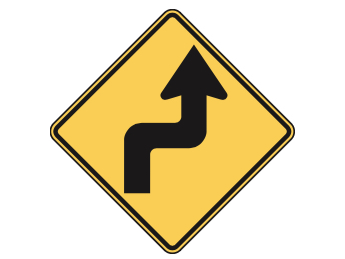
The road ahead makes a sharp turn to the right and then a sharp turn to the left.
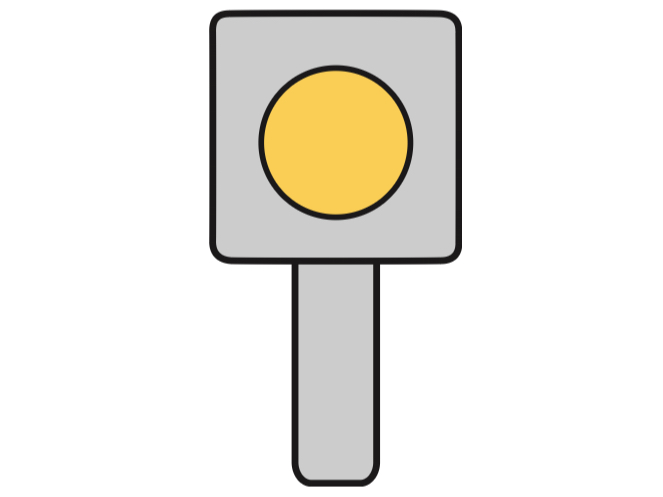
Used to indicate the alignment of the road as an aid to night driving.
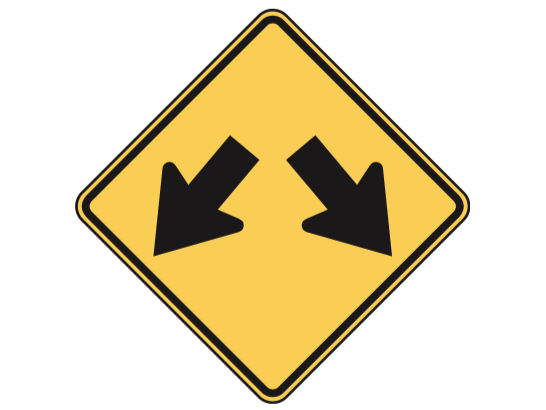
Indicates traffic is permitted to pass on either side of a traffic island or an obstruction.
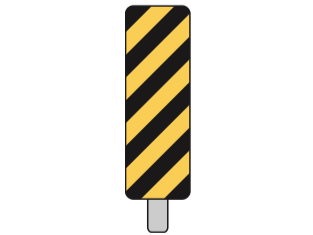
Used to mark the ends of the side rails of narrow bridges and other obstructions.
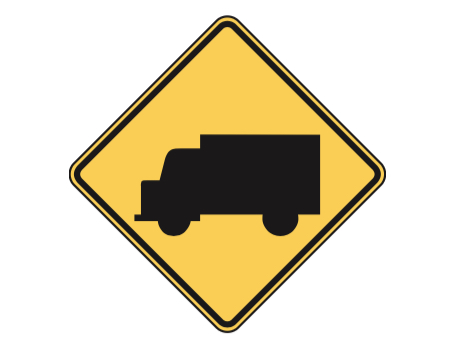
Slow your speed and watch for trucks entering or crossing the road or highway.
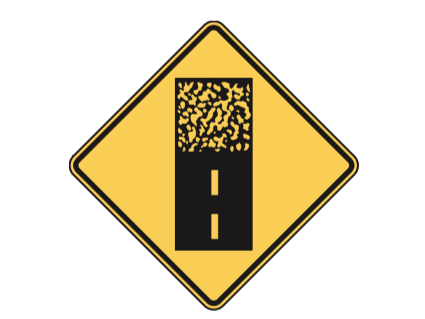
The hard-surfaced pavement changes to an earth road or low-type surface. Slow down.
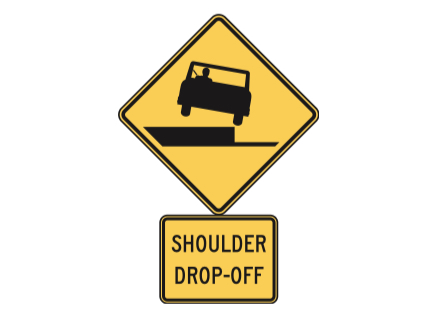
There is a significant drop from the pavement edge to the shoulder. If you must leave the pavement, slow down and steer firmly.
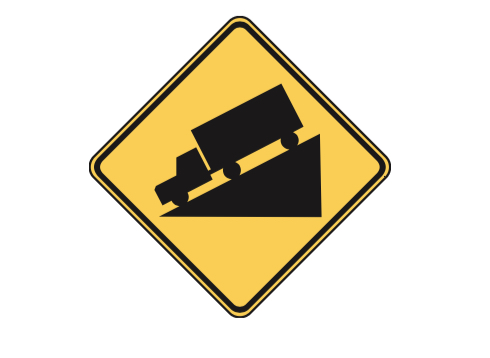
You are approaching a downgrade; all drivers approach with caution. It may be necessary to use a lower gear to slow your vehicle.
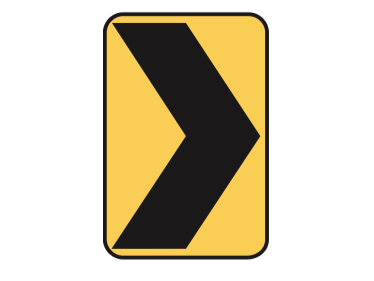
The road ahead curves sharply. Slow down, keep right, and do not pass.
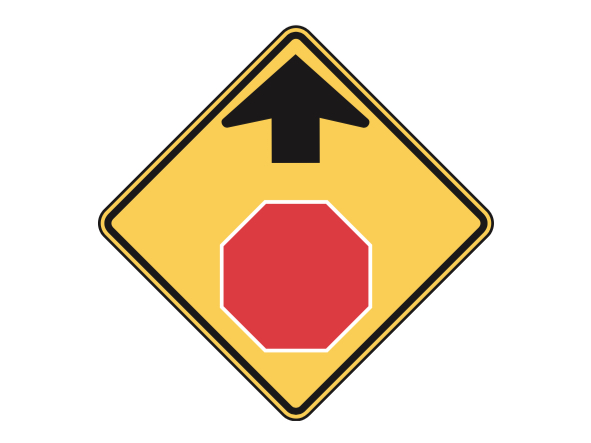
Be prepared for a stop sign ahead.
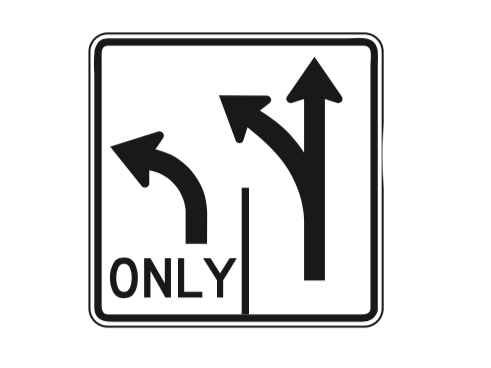
Two lanes of traffic are permitted to turn left. The traffic in the left lane must turn left, traffic in the other lane as a choice.
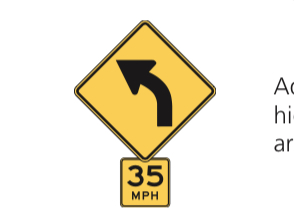
Advisory Speed Sign: This sign gives the highest speed which you can safely travel around the curve ahead.
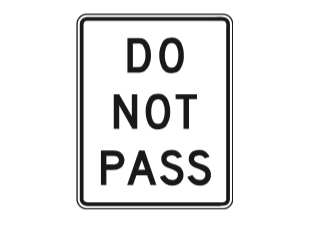
Do not pass other vehicles.
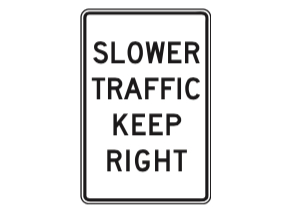
Stay in the right-hand lane if you are driving slower than other vehicles on the road.
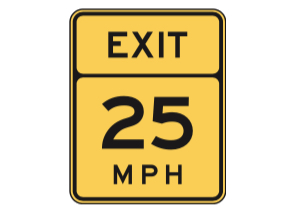
Indicates the speed at which the exit ramp from a highway may be traveled safely.
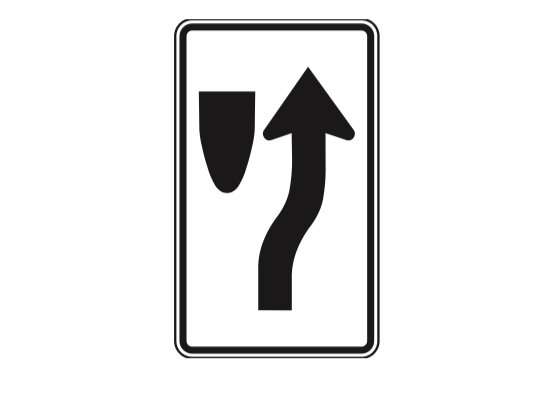
Drive to the right of this sign. This sign is used in advance of islands and medians.
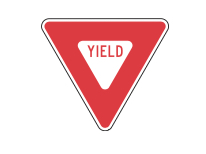
The road you re on joins with another road ahead.. You should slow down or stop if necessary so you can yield the right-of-way to vehicles, pedestrians, or bicycles on the other road.
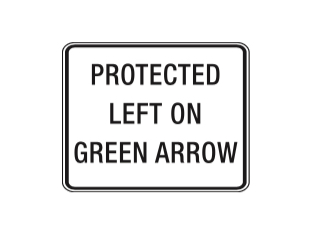
Vehicles facing the signal with the green arrow may proceed safely into the intersection. While turning left, you are protected from oncoming traffic that must stop for vehicles at an intersection. Vehicles turning at a protected light should use caution.
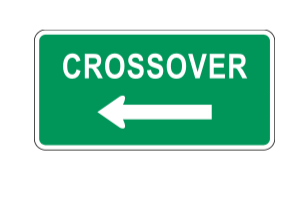
This sign marks a place where you may cross over to the other side of the divided highway.
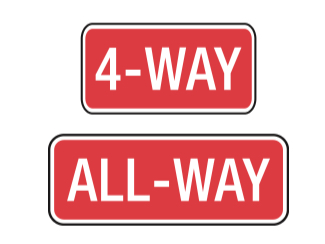
These signs are aded to a stop sign advising that all approaching traffic to this intersection must stop before proceeding in the order you arrived. If two vehicles arrive at the same time, yield to the vehicle on your right.
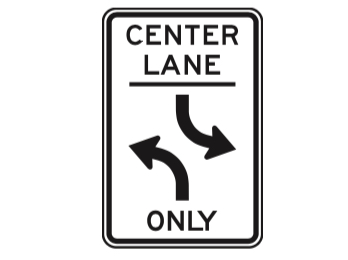
The center lane is only used for vehicles turning left, and should never be sued for passing or moving through traffic. The only time a vehicle should enter the center lane is at a point whee the vehicle will have time to slow down or stop to make a safe left turn.
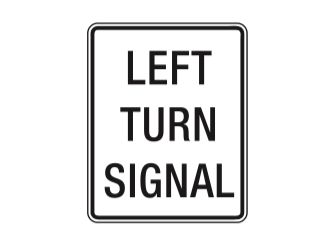
A green signal will indicate when you may turn left.
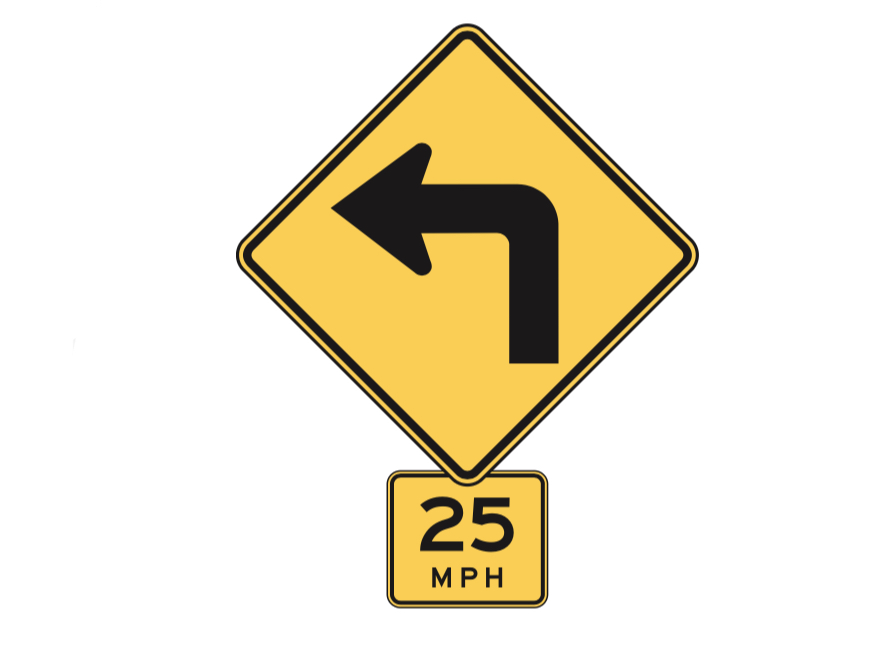
This sign gives the highest speed at which you can safely travel around the turn ahead.
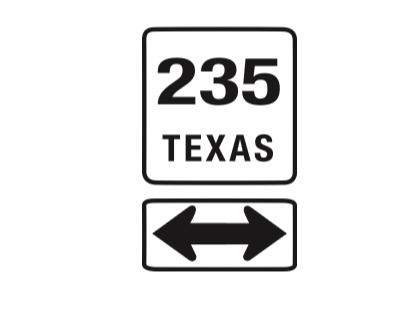
Texas Route Marker
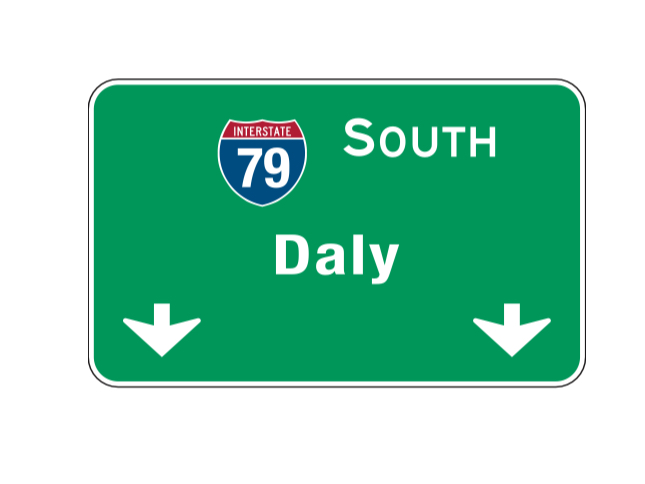
The arrows indicate the lane or lalnes to be used ot follow a particular highway route.
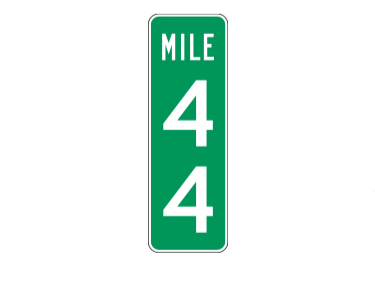
Mileposts provide a means of identifying the location of crashes, breakdowns, or other emergencies. Mileposts are erected every mile on interstate highways.
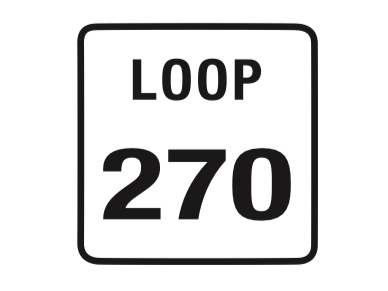
This sign tells you what road you are on. It is a short state highway in a city or urban area.
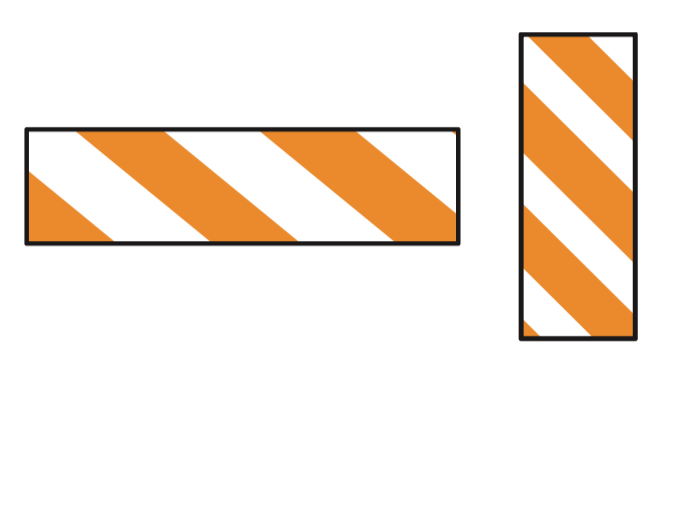
Pass to the Right
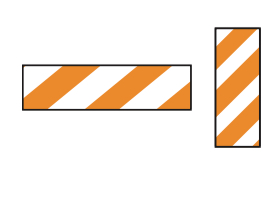
Pass to the Left
